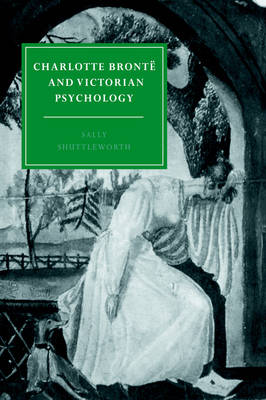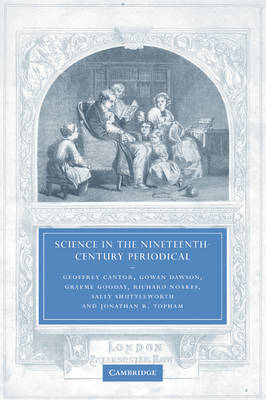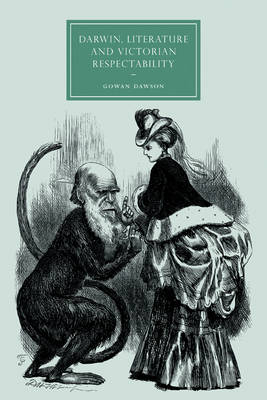Cambridge Studies in Nineteenth-Century Literature and Culture
3 total works
This innovative and critically acclaimed study successfully challenges the traditional view that Charlotte Brontë existed in a historical vacuum, by setting her work firmly within the context of Victorian psychological debate. Based on extensive local research, using texts ranging from local newspaper copy to the medical tomes in the Reverend Patrick Brontë's library, Sally Shuttleworth explores the interpenetration of economic, social, and psychological discourse in the early and mid-nineteenth century, and traces the ways in which Charlotte Brontë's texts operate in relation to this complex, often contradictory, discursive framework. Shuttleworth offers a detailed analysis of Brontë's fiction, informed by a new understanding of Victorian constructions of sexuality and insanity, and the operations of medical and psychological surveillance.
Science in the Nineteenth-Century Periodical
by Geoffrey Cantor, Gowan Dawson, Graeme Gooday, Richard Noakes, Sally Shuttleworth, and Jonathan R. Topham
Published 9 September 2004
For the Victorian reading public, periodicals played a far greater role than books in shaping their understanding of new discoveries and theories in science, technology and medicine. Such understandings were formed not merely by serious scientific articles, but also by glancing asides in political reports, fictional representations, or humorous attacks in comic magazines. Ranging across diverse forms of periodicals, from top-selling religious and juvenile magazines through to popular fiction-based periodicals, and from the campaigning 'new journalism' of the late century to the comic satire of Punch, this book explores the ways in which scientific ideas and developments were presented to a variety of Victorian audiences. In addition, it offers three case studies of the representation of particular areas of science: 'baby science', scientific biography, and electricity. This intriguing collaborative volume sheds light on issues relating to history and history of science, literature, book history, and cultural and media studies.
The success of Charles Darwin's evolutionary theories in mid-nineteenth-century Britain has long been attributed, in part, to his own adherence to strict standards of Victorian respectability, especially in regard to sex. Gowan Dawson contends that the fashioning of such respectability was by no means straightforward or unproblematic, with Darwin and his principal supporters facing surprisingly numerous and enduring accusations of encouraging sexual impropriety. Integrating contextual approaches to the history of science with work in literary studies, Dawson sheds light on the well-known debates over evolution by examining them in relation to the murky underworlds of Victorian pornography, sexual innuendo, unrespectable freethought and artistic sensualism. Such disreputable and generally overlooked aspects of nineteenth-century culture were actually remarkably central to many of these controversies. Focusing particularly on aesthetic literature and legal definitions of obscenity, Dawson reveals the underlying tensions between Darwin's theories and conventional notions of Victorian respectability.


